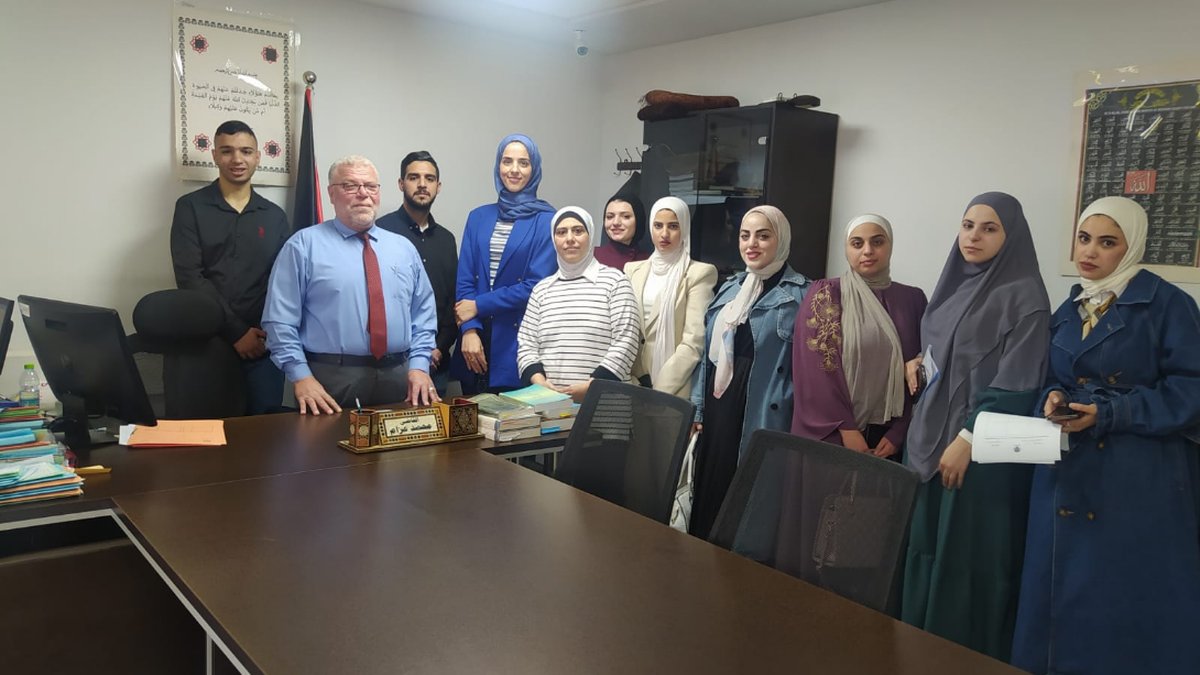
On Sunday, April 6, 2025, the Legal Clinic at the Faculty of Law and Political Science at An-Najah National University launched a specialized practical training program for its students at the Nablus Sharia Court. The opening was attended by the honorable Sharia Court Judge Sheikh Mohammad Azzam and Ms. Safa Balawi, Director of the Legal Clinic.
This training is considered the first of its kind within the Legal Clinic's activities and comes as part of the Clinic’s efforts to enhance practical legal education by immersing students in real judicial environments. The program focuses on personal status law, addressing issues that affect the daily lives of citizens, such as marriage, divorce, inheritance, and custody, key pillars of social justice.
In his remarks, Judge Mohammad Azzam highlighted the importance of deepening students’ understanding of sensitive legal areas, particularly personal status law, given its vital role in ensuring family and societal stability. He emphasized that opening the doors of the courts to students strengthens their practical legal awareness and helps build a generation of young legal professionals capable of creating positive change in society.
Ms. Safa Balawi noted that this training aligns with the Legal Clinic's vision of providing an integrated learning experience that bridges theoretical knowledge and practical application. She affirmed that such experiences contribute to developing students’ competencies and achieving the Sustainable Development Goals, especially Goal 4 on quality education and Goal 16 on promoting peace, justice, and strong institutions.
The training aims to empower students to engage directly with real cases, encouraging critical thinking and legal analysis through hands-on involvement with personal status files. This practical exposure enhances their legal skills and strengthens their capacity to serve the Palestinian community with a commitment to justice and transparency.
This training is part of a series of activities implemented by the Legal Clinic under the framework of the “Enhancing the Sustainability of the Legal Clinic” project, funded by Sawasya III Programme and carried out in partnership with the United Nations Development Programme (UNDP), UN Women, and UNICEF. The project aims to improve the outcomes of legal education, connect it to sustainable development, and empower youth within their communities.
عدد القراءات: 38
